Homegrown rapeseed could solve cooking oil shortage, farmer says
- Published
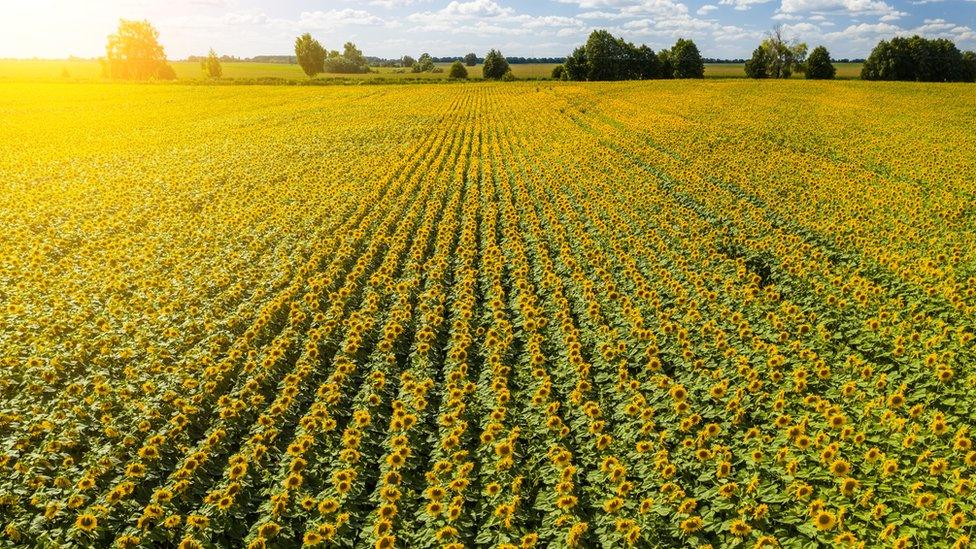
The majority of the UK's sunflower oil comes from Ukraine
A farmer has said the current shortage of cooking oil could be solved by more domestically grown rapeseed.
Emma Foot grows rapeseed on her 500-acre farm at Bere Regis in Dorset.
She said fewer farmers were growing the crop since a ban on a key pesticide in 2013, external but said she was willing to take the risk of the crop failing.
The war in Ukraine has seen exports of sunflower oil plummet in recent months, leading to a world-wide shortage.
That has seen consumers turn to alternative cooking oils, but in recent years UK farmers have planted less oilseed rape following the pesticide ban brought in to protect bees.
The chemicals were outlawed by the EU after research suggested they were damaging bees' brains but it led to a surge in flea beetles and major crop losses.
The subsequent collapse in rapeseed farming in the UK has led to a reliance on imported oils from other countries.
Ms Foot said while growing oilseed rape was "challenging" it would reduce the UK's dependency on foreign imports.
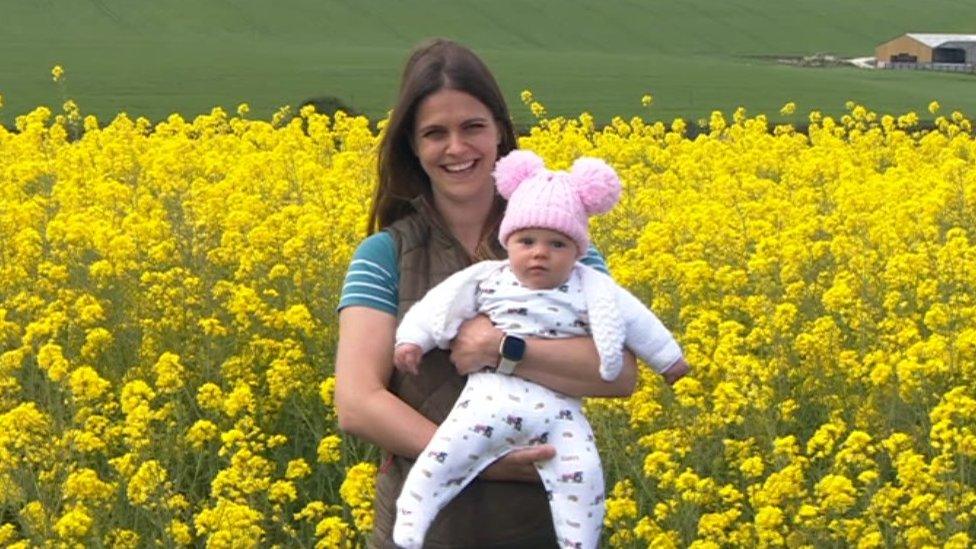
Farmer Emma Foot with her daughter in Bere Regis
Ms Foot, who devotes 130 acres to growing rapeseed, said: "I do find it a little bit backwards that we're importing from countries such as Australia which are using seed dressings that we aren't allowed to use."
But the Bere Regis farmer was committed to growing the crop here, even though it "does come at a risk" after her crop was decimated by the flea beetle two years ago.
The government said all agri-food products imported into the UK had to comply with import requirements.
The Department for Environment Food and Rural Affairs (DEFRA) said: "The amounts of pesticide residues that are permitted in food must be safe for consumers and must be as low as possible.
"Imported produce which has been treated with pesticides, including neonicotinoids, is permitted as long as the residues are within the maximum residue levels allowed."
DEFRA added there was "ongoing monitoring" of pesticide residues.
Recent figures by Data by NielsenIQ Scantrack showed the cost of sunflower oil had risen to £1.34 per litre.
Exports from Russia and Ukraine account for 55% of the global supply, according to the United Nations food agency but the war has had a major impact on exports.
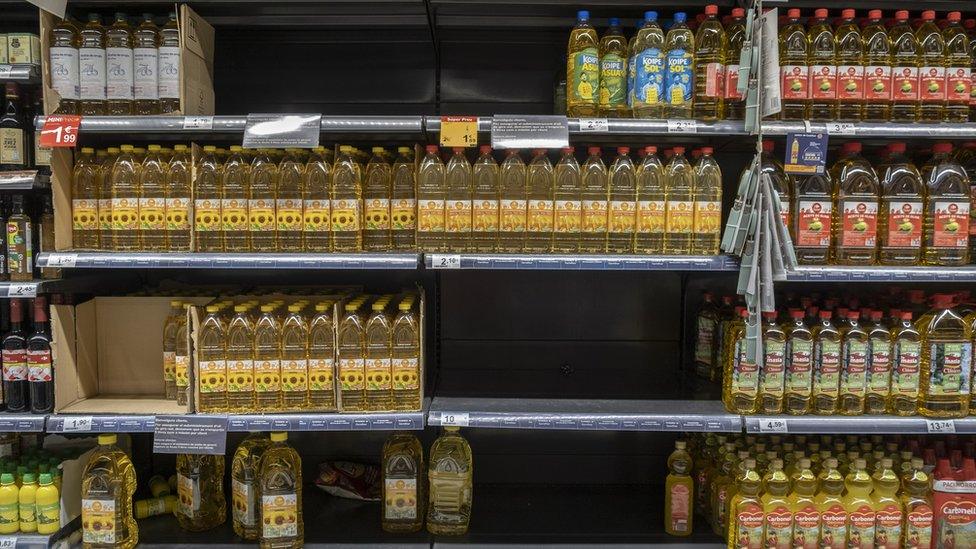
The war in Ukraine has led to a shortage of sunflower oil in supermarkets across the world
Ms Foot said farmers here had suffered from increased costs just as the general public had: "Fuel being 40p previously is now about £1 for red diesel, fertiliser was £270 a tonne, now it's about £1000.
"So, it is quite a hit really because you're just dealing with more money, you're not getting any more."
The farmer said if local businesses would buy the homegrown rapeseed it would be a "really good USP for them".

Follow BBC South on Facebook, external, Twitter, external, or Instagram, external. Send your story ideas to south.newsonline@bbc.co.uk, external.
Related topics
- Published22 April 2022
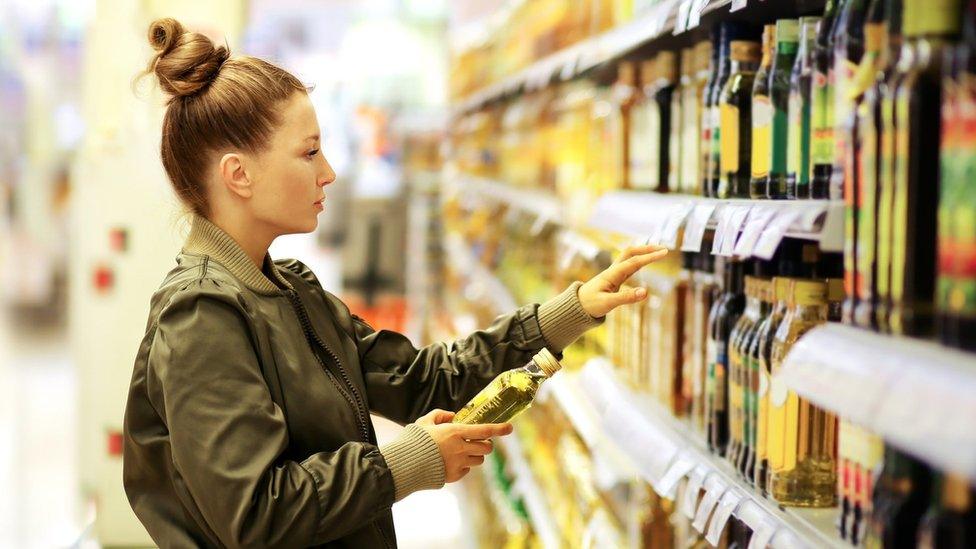
- Published25 September 2014
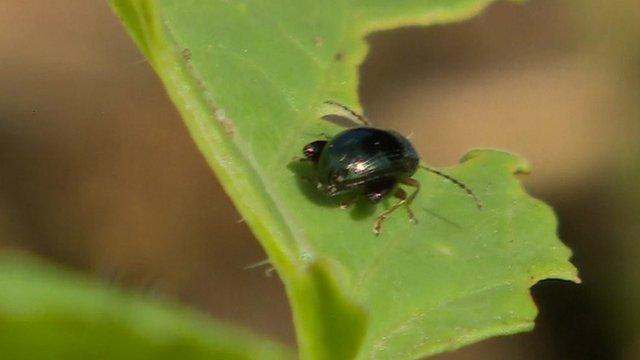
- Published9 October 2014
